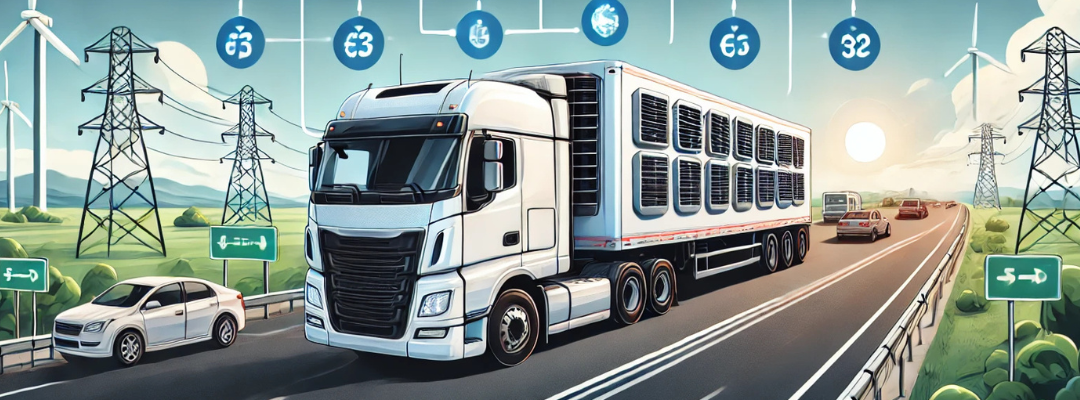Fuel-efficient air conditioners are becoming essential for truck drivers, especially those involved in long-haul journeys. These systems not only improve driver comfort but also reduce operating costs, environmental impact, and enhance overall vehicle performance. Here’s why fuel-efficient air conditioners are a must-have for truck drivers:
1. Reduced Fuel Consumption
Traditional truck air conditioners often require the engine to run while cooling the cabin, consuming significant amounts of fuel, particularly during idling. Fuel-efficient AC systems, including those powered by auxiliary power units (APUs) or battery-powered systems, are designed to cool the truck without relying heavily on the engine.
- Engine-Off Cooling: These systems can run without idling the engine, reducing fuel consumption dramatically. For long-haul truck drivers who spend hours at rest stops or sleeping in their cabs, fuel-efficient AC systems can save hundreds or even thousands of liters of fuel over the year.
- Fuel Savings: By reducing engine idling, fuel-efficient AC systems lower fuel costs. This leads to significant savings, especially for fleet operators or independent drivers who need to manage fuel expenses closely.
2. Compliance with Anti-Idling Regulations
Many regions have anti-idling laws that prohibit trucks from keeping their engines running while parked or resting. Violating these laws can result in hefty fines. Fuel-efficient air conditioning systems allow drivers to stay cool without breaking these regulations.
- No-Idle AC Systems: Fuel-efficient AC units that operate independently of the truck’s engine, such as battery-powered units or APUs, ensure that drivers remain comfortable without violating anti-idling laws, avoiding potential fines and penalties.
3. Cost Savings
Fuel-efficient air conditioners reduce the total cost of ownership by saving on fuel, reducing engine wear, and lowering maintenance costs. For long-haul drivers who spend significant time on the road, these savings add up over time.
- Less Engine Wear: Reducing the need for engine idling helps lower engine wear and tear. This reduces the frequency of engine-related maintenance and repair costs.
- Longer Lifespan of AC System: Fuel-efficient AC systems are often designed with modern technology that ensures a longer lifespan and lower maintenance requirements, further reducing operational costs.
4. Environmental Impact
Fuel-efficient AC systems significantly reduce a truck’s carbon footprint. By minimizing the need for engine idling, these systems help decrease harmful emissions, making them an environmentally responsible choice.
- Lower Carbon Emissions: Every hour of engine idling burns fuel and releases carbon dioxide into the atmosphere. Fuel-efficient air conditioners, which operate without engine idling, help reduce these emissions, contributing to cleaner air and a smaller environmental impact.
- Sustainability: Many companies are shifting toward sustainable practices, and adopting fuel-efficient AC units is a step toward greener, more sustainable operations in the trucking industry.
5. Improved Driver Comfort and Productivity
Truck drivers often spend long hours on the road, and comfort during rest periods is crucial for maintaining focus and productivity. Fuel-efficient AC systems ensure that the cabin remains cool, even when the truck is parked, allowing drivers to rest comfortably.
- Better Rest: Drivers who rest in their trucks can use fuel-efficient AC systems to cool the cabin during breaks without draining fuel. This leads to better sleep and improved alertness, which is crucial for safe driving.
- Quiet Operation: Many fuel-efficient air conditioning systems, particularly those powered by APUs or batteries, operate more quietly than traditional systems, creating a quieter and more peaceful environment for resting drivers.
6. Flexibility and Long-Term Efficiency
Fuel-efficient air conditioning units often come with features like programmable thermostats, multi-speed fans, and energy-efficient designs that allow drivers to customize cooling to their needs while minimizing power consumption.
- Long-Term Efficiency: These systems are designed to optimize performance while using less energy. This means truck drivers can enjoy cool air for longer periods without running out of battery or fuel.
7. Increased Resale Value
Trucks equipped with fuel-efficient AC systems are often more attractive in the resale market. Buyers understand the long-term cost-saving benefits of these systems, and as such, vehicles with energy-efficient features tend to command higher resale prices.
Conclusion
Fuel-efficient air conditioners are no longer a luxury but a necessity for truck drivers, especially in an industry where fuel costs, regulations, and environmental concerns play significant roles. By reducing fuel consumption, lowering emissions, and improving driver comfort, these AC systems deliver both economic and environmental benefits. Investing in a fuel-efficient AC unit can lead to substantial savings, enhanced productivity, and long-term efficiency for truck drivers and fleet operators alike.

